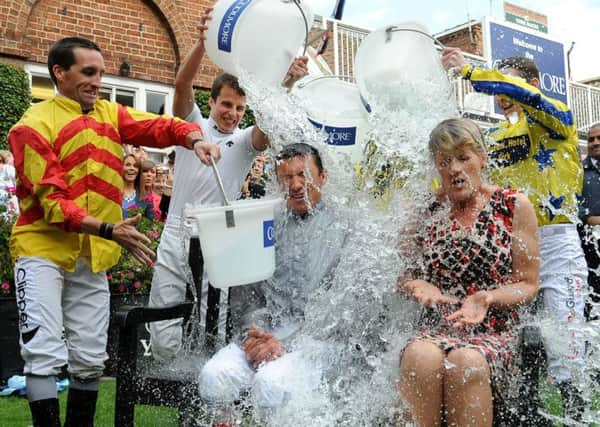Ice Bucket challenge funds motor neurone disease gene breakthrough


The “Ice Bucket Challenge” went viral in 2014 as scores of famous figures including Tom Cruise, Ruth Langsford, Benedict Cumberbatch, David Beckham, Lady Gaga and Taylor Swift posted videos showing them getting a chilly drenching.
Despite being dismissed in some quarters as a pointless stunt, the campaign raised $115m (£87.7m) and funded six research projects.
Advertisement
Hide AdAdvertisement
Hide AdOne of them has now led to the discovery of a new gene linked to amyotrophic lateral sclerosis (ALS), also known as motor neurone disease - the devastating progressive brain condition suffered by top physicist Professor Stephen Hawking.
Defective variants of the gene, NEK1, are only found in 3% of ALS sufferers but are present in both inherited forms of the disease and “sporadic” cases without any family connection.
Scientists believe the gene could guide them to the development of potential new treatments.
The Project MinE study, which produced the discovery, was funded by US charity the ALS Association using money from the Ice Bucket Challenge.
Advertisement
Hide AdAdvertisement
Hide AdMore than 80 scientists from 11 countries identified NEK1 after searching for ALS risk genes in more than 1,000 affected families and 13,000 individuals with the “sporadic” form of the disease.
Their results were published in the journal, Nature Genetics.
Dr John Landers, from the University of Massachusetts Medical School in Worcester, US, who co-led the study, said: “Global collaboration among scientists, which was really made possible by ALS Ice Bucket Challenge donations, led to this important discovery.
“It is a prime example of the success that can come from the combined efforts of so many people, all dedicated to finding the causes of ALS. This kind of collaborative study is, more and more, where the field is headed.”
Advertisement
Hide AdAdvertisement
Hide AdProject MinE was the brainchild of entrepreneur and Dutch ALS patient Bernard Muller. He said: “The ALS Ice Bucket Challenge enabled us to secure funding from new sources in new parts of the world.
“I’m incredibly pleased with the discovery of the NEK1 gene adding another step towards our ultimate goal, eradicating this disease from the face of the earth.”
More than 17 million people reportedly uploaded Ice Bucket Challenge videos to Facebook.